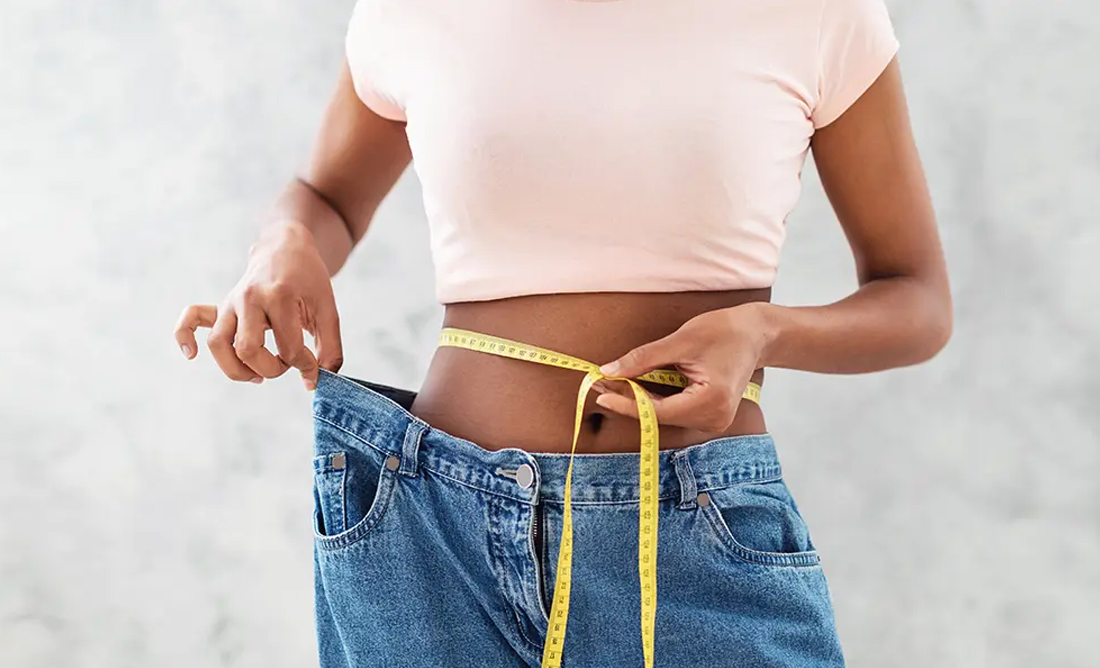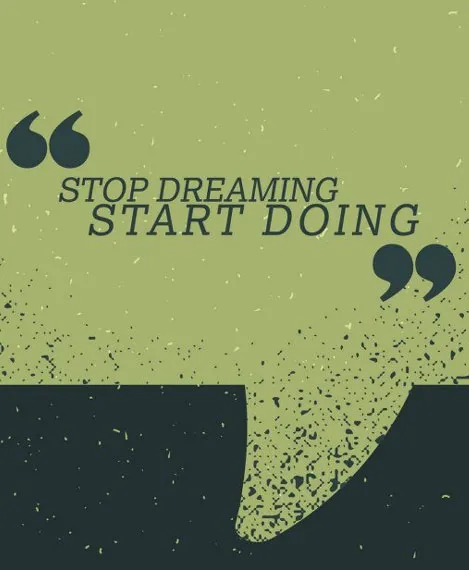How I Lost 20 kgs With a Best Dietitian’s Help from Guiding You — And Kept It Off
How I Lost 20 kgs With a Best Dietitian’s Help from Guiding You — And Kept It Off

Tired of trying every new diet fad? I certainly was. For years, I cycled through restrictive eating plans and quick-fix detoxes, only to gain back every kilogram, sometimes more. It felt like a never-ending battle. The internet was full of conflicting advice, leaving me confused and ready to give up. I longed for a real solution, something that would actually work for me.
That's when I hit my breaking point. I realized I needed a different approach, one backed by science and personal support. The thought of hiring a dietitian felt a little scary at first. Would it be too expensive? Would they just tell me to eat salads all day? Despite my doubts, I decided to take the leap. This article shares my journey: how I lost 20 kgs with the expert help of a dietitian from Guiding You and, more importantly, learned how to keep it off for good.
Finding the Right Dietitian: A Crucial First Step
The Challenges of Self-Guided Weight Loss
Trying to lose weight alone often feels like a guessing game. You might cut out entire food groups, like carbs or fats, because you read it online. Or perhaps you try a juice cleanse that leaves you hungry and grumpy. These fad diets rarely teach you how to eat for life. They offer short-term results at best, leading to a frustrating cycle of weight loss and regain.
Many people struggle because there's so much misinformation out there. It's hard to tell what advice is sound and what's simply a trend. Relying on unreliable sources can actually harm your health. It really pays to find health information from trusted experts.
What to Look for in a Dietitian
Finding the right professional makes all the difference. First, always look for a Registered Dietitian (RD). This means they have a special degree, passed an exam, and complete ongoing training. A "nutritionist" might not have the same level of education or certification. You want someone who specializes in weight management and understanding unique body needs.
It's also important to find a good personal fit. Think about someone you can talk openly with. A great dietitian should listen more than they talk. The Academy of Nutrition and Dietetics agrees that RDs provide personalized, evidence-based nutrition advice essential for weight management. When you speak to a potential dietitian, ask questions like:
- "What's your approach to weight loss?"
- "How do you support clients between sessions?"
- "Can you help me with my specific health concerns?"
The Initial Consultation Experience
My first meeting with the dietitian from Guiding You was really eye-opening. We didn't just talk about food. We discussed my full medical history, my daily routines, and even my stress levels. She asked about my favorite foods and what I truly enjoyed doing. It felt less like an exam and more like a friendly chat.
We went over my eating habits, from breakfast to late-night snacks. She helped me see common patterns, like emotional eating after a tough day. Together, we set realistic goals, like losing 1-2 pounds a week, rather than expecting instant transformation. This first step felt like building a strong foundation.
The Personalized Nutrition Plan: Beyond Generic Advice
Moving Beyond Calorie Counting
Many diets focus only on calories, which can feel very restrictive. My dietitian at Guiding You showed me a better way. We didn't just count numbers; we focused on nutrient density. This meant choosing foods that offered more vitamins, minerals, and fiber. The plan emphasized lean protein, healthy fats, and complex carbs.
She helped me understand how different foods affect my body. We looked at macronutrient balance – getting the right mix of protein, carbs, and fats. This approach fed my body, not just filled it. Start by making whole, unprocessed foods the main part of your plate. It's a simple, powerful change.
Incorporating Food Preferences and Lifestyle
One of the best parts was that the plan wasn't rigid. My dietitian helped me include foods I loved, just in smarter ways. For instance, I adore pasta, so we learned to make it with whole wheat and load it with vegetables and lean protein. This made meals satisfying without feeling like a punishment.
She also made sure the plan fit my busy life. We talked about quick meal prep ideas for weekdays. This helped me avoid unhealthy takeout when I was short on time. Adapting the plan meant it became a sustainable way of eating, not a temporary diet.
The Role of Macronutrients and Micronutrients
Understanding macronutrients changed how I viewed food. Protein became a hero for feeling full and maintaining muscle. Healthy fats, like those in avocados or nuts, helped with hormone balance and made meals more satisfying. Complex carbohydrates, like brown rice or sweet potatoes, gave me steady energy.
We also talked about micronutrients – the vitamins and minerals that keep your body running well. Getting enough of these from diverse foods is crucial. Studies show that adequate protein intake, around 25-30% of daily calories, can boost satiety and aid in weight loss. It's all about balanced nutrition.
Integrating Physical Activity for Sustainable Results
Finding Enjoyable Forms of Exercise
For years, exercise felt like a chore, a punishment for eating too much. My dietitian helped me change this mindset. We focused on finding activities I actually enjoyed. I started walking more, discovered a love for cycling, and even tried dancing. When exercise feels like fun, you're much more likely to stick with it.
It became a form of self-care rather than something I had to do. It was a way to de-stress and boost my mood. Don't be afraid to try different types of physical activity. You might find a hidden passion, like I did!
The Dietitian's Role in Exercise Recommendations
While my weight-loss dietitian didn't create a detailed workout plan, she offered great advice on how to pair my nutrition with physical activity. She explained how strength training builds muscle, which can speed up your metabolism. We discussed balancing cardio for heart health with resistance exercises.
She really stressed that diet and exercise work together for the best results. As many health experts confirm, a combination of healthy eating and regular physical activity is the most effective approach for long-term weight management. They are truly partners in health.
Gradual Progression and Consistency
One of the key lessons was to start slow and build up. I didn't try to run a marathon on day one. We began with short, manageable walks and slowly increased the time and intensity. This approach prevented burnout and injury. Consistency became more important than intensity.
Even small workouts added up over time. Setting small, achievable fitness goals keeps you motivated without feeling overwhelmed. Celebrate those little victories along the way.
Overcoming Obstacles and Maintaining Motivation
Navigating Social Situations and Cravings
Life doesn't stop just because you're working on your health goals. Social events, holidays, and parties often present food challenges. My dietitian taught me strategies like eating a healthy snack before a party. At the event, I'd fill my plate mostly with vegetables and lean protein, then enjoy a small portion of a treat.
Cravings were another big hurdle. We talked about identifying triggers and finding healthy alternatives. Sometimes, a craving just meant I was thirsty. Other times, it meant I needed a healthy distraction, like going for a walk. It was about managing, not depriving.
The Psychology of Weight Loss and Mindset Shifts
Losing weight isn't just about food; it's deeply psychological. I learned to develop a more positive self-image, celebrating my progress. Self-compassion became important, especially on days when I didn't make perfect choices. My dietitian helped me reframe setbacks as learning opportunities, not failures.
Journaling my food intake and how I felt helped me understand emotional triggers for eating. This simple practice brought so much awareness. It showed me patterns I never noticed before.
Building a Support System
Having a good support system made a huge difference. My family and friends cheered me on, and knowing they understood my goals was a huge help. Sometimes, just having someone to talk to about my struggles kept me from giving up. Whether it's a partner, friend, or an online community, a support network can be incredibly powerful.
The Long-Term Success: Keeping the 20 kgs Off
Habits vs. Diet: The Key to Longevity
The biggest shift was realizing this wasn't a "diet" I'd eventually stop. It was about building new, healthy habits for life. My dietitian helped me make small changes that became second nature. These habits included regular meal times, drinking enough water, and choosing nutrient-rich foods most of the time.
Many restrictive diets fail because they are not sustainable. Studies show that a high percentage of people regain weight after restrictive diets. Focusing on lifestyle changes, as I did with Guiding You, is what truly lasts.
Regular Check-ins and Adjustments
Even after reaching my goal weight, I continued with periodic check-ins with my dietitian. Life changes, and so do our nutritional needs. We fine-tuned my plan as my activity levels changed or if I faced new challenges. These "nutrition tune-ups" ensured I stayed on track and made smart choices.
I highly recommend scheduling a check-in with your dietitian every few months. It's like a wellness check-up for your eating habits. It helps you stay accountable and adapt to new situations.
Mindful Eating and Intuitive Eating Principles
One of the lasting lessons from my journey was learning mindful eating. This meant paying attention to my food, savoring each bite, and eating slowly. It also taught me to listen to my body's hunger and fullness cues. I learned to eat when truly hungry and stop when comfortably full, not stuffed.
This intuitive approach helped me develop a healthier relationship with food. It wasn't about rules or restrictions anymore. It was about respecting my body and giving it what it needed. Eating slowly and without distractions, like my phone, made a big impact.
Conclusion
Losing 20 kgs felt impossible before I found the right guidance. With the personalized support of a dietitian from Guiding You, I not only reached my weight goal but also learned how to maintain it. It wasn't a quick fix, but a journey of consistent effort, smart choices, and a huge mindset shift.
The key takeaways from my experience are clear. Professional guidance, a personalized plan, consistent effort, and a positive mindset are vital. Remember, sustainable health is a journey, not a destination. If you've been struggling with your weight, consider seeking professional help from a registered dietitian. It could be the best decision you make for your long-term health and well-being.




